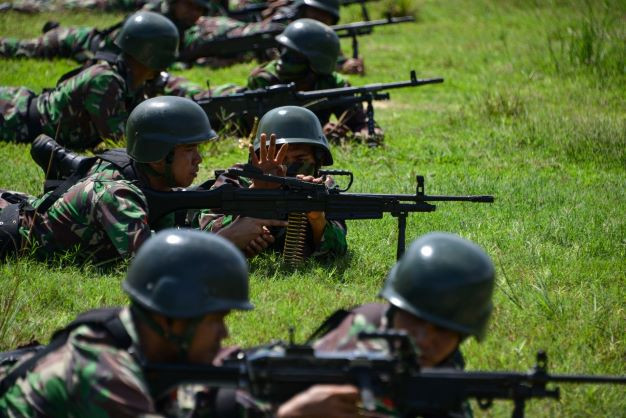Popular Reads
Top Results
Can't find what you're looking for?
View all search resultsPopular Reads
Top Results
Can't find what you're looking for?
View all search resultsDefense spending can bring local economies new hope
Defense offsets and transfers of technology from arms deal can benefit all stakeholders in the domestic defense industry, so long as the government ensures inclusivity and a level playing field.
Change text size
Gift Premium Articles
to Anyone
I
n 2017, the government announced a plan to relocate three state-owned defense companies, namely PT Pindad, PT PAL and PT Dirgantara Indonesia (PT DI), to Tanggamus regency in Lampung province. It was the first time that the Defense Ministry considered such a project since the government started to revitalize the domestic defense industry and modernize the Indonesian Military (TNI).
Their relocation was based on several considerations, specifically the limited space available for the state firms to expand their production facilities due to high population density and land use on the island of Java. Then-defense minister Ryamizard Ryacudu said approximately 10,000 hectares of land would be needed to build new factories for the three companies.
Nonetheless, the relocation plan has since been in limbo and shipbuilder PT PAL, aircraft manufacturer PT DI and arms producer Pindad continue to operate at their existing sites.
In 2021, President Joko “Jokowi” Widodo hinted at reviving the relocation plan, but with a different scenario. He instructed that Pindad and PT DI be relocated in the vicinity of Kertajati International Airport in Majalengka, West Java, and that the two companies’ headquarters in the West Java capital of Bandung be transformed for tourism or other relevant sectors.
Observers seem to support the idea, saying that relocating the SOEs might help them revive stalled projects. Furthermore, the government claims that the relocation plan is part of its effort to revitalize the defense industry to eventually achieve self-sufficiency.
The undertaking is also seen as a strategy for the government to achieve its goal of equitable development in order to strengthen national resilience. In this sense, revitalizing the defense industry, including the relocation plan, opens opportunities for not only the central government, but also the administrations of the regions where the companies operate.
The benefits from the relocation plan can take several forms, such as jobs and tax revenue. For instance, Pindad’s production facility in Malang, for example, has created more than 300 jobs and generated a multiplier effect for 300 local companies. Meanwhile, PT DI and Pindad’s production facilities in Bandung have generated tax revenue for the local administration and also attracted foreign companies to invest in the region, such as the United States’ Jabil Inc. and UTC Aerospace Systems [now Collins Aerospace –Editor], which began operating in 2017.



















